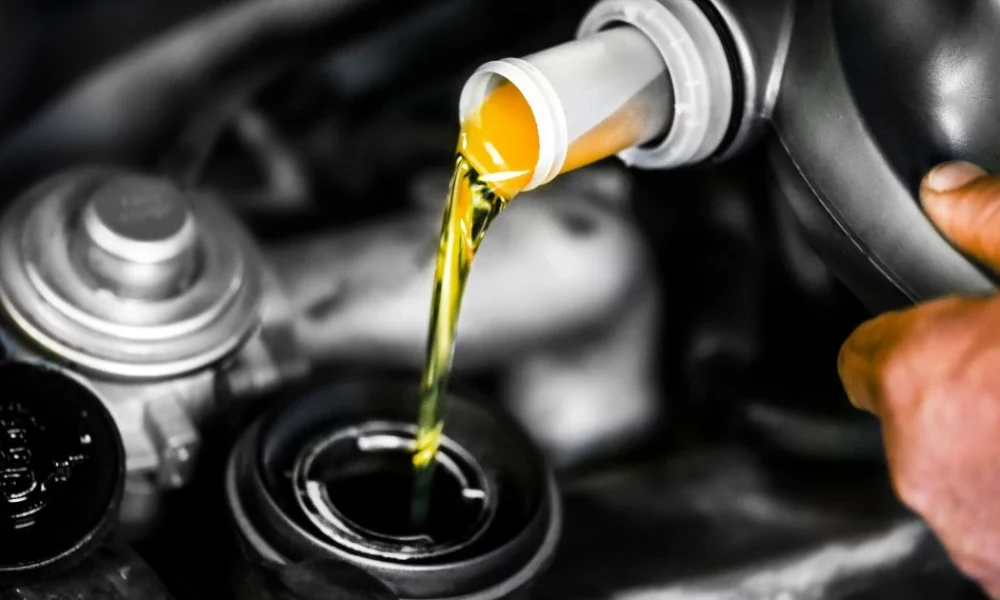Understanding the Importance of Quality Lubricants in Automotive Maintenance

For many of us, our vehicles are more than just a mode of transportation; they are an integral part of daily life. From family road trips to daily commutes, we rely heavily on our vehicles to perform efficiently and reliably. Amid the many aspects of vehicle maintenance, one critical yet often overlooked factor is the role of lubricants. Understanding their importance can make a significant difference in how well your vehicle performs and how long it lasts.
What Are Automotive Lubricants?
Automotive lubricants are specialized fluids designed to reduce friction between the moving parts of an engine or machinery. They serve several functions, including:
- Minimizing Wear and Tear: By reducing friction, lubricants prevent metal parts from grinding against each other, extending the life of engine components.
- Regulating Temperature: They help dissipate heat generated during engine operation, keeping the system cool and efficient.
- Protecting Against Corrosion: High-quality lubricants form a protective barrier against rust and oxidation.
- Cleaning the Engine: Many lubricants contain additives that help remove sludge and debris, maintaining engine cleanliness.
Types of Lubricants and Their Applications
The market offers a wide range of lubricants, each designed for specific needs. Some of the most common types include:
1. Motor Oils
Motor oil is essential for the smooth functioning of an engine. It comes in various formulations, such as:
- Synthetic Oils: These are chemically engineered for superior performance and are ideal for modern engines.
- Conventional Oils: Derived from crude oil, these are suitable for older or less demanding engines.
- High-Mileage Oils: Designed for vehicles with over 75,000 miles, they contain additives that condition seals and reduce oil consumption.
2. Transmission Fluids
Transmission fluids ensure smooth gear shifts and protect the transmission system from wear. Automatic and manual transmissions require different formulations, so it’s important to use the correct type for your vehicle.
3. Gear Oils
Gear oils are used in differentials and gearboxes. They are specifically formulated to handle the high pressures and extreme conditions these components endure.
4. Greases
Greases are thicker than oils and are used in areas where a lasting application is needed, such as wheel bearings and chassis components.
5. Eco-Friendly Options
With the growing focus on sustainability, biodegradable and low-emission lubricants have gained popularity. These are designed to minimize environmental impact without compromising performance.
How to Choose the Right Lubricant
Selecting the right lubricant for your vehicle is crucial. Here are some factors to consider:
- Manufacturer Recommendations: Always check your vehicle’s manual for the recommended lubricant specifications.
- Driving Conditions: Extreme temperatures, heavy loads, and frequent stop-and-go traffic can influence the type of lubricant needed.
- Engine Type: Different engines, such as gasoline, diesel, or hybrid, have unique requirements.
- Vehicle Age: High-mileage vehicles often benefit from specialized oils designed to restore performance.
A Trusted Name in Lubrication: V8 German Lubricants
When discussing quality lubricants, v8germanlubricants stands out for its commitment to engineering excellence and environmental sustainability. Their diverse range of products caters to various engine types and driving conditions, ensuring reliability and peak performance for vehicles worldwide.
The Science Behind Lubricants
Modern lubricants are not just simple oils; they are a complex blend of base oils and additives. The base oil makes up the majority of the formulation and determines the lubricant’s viscosity. Additives enhance the oil’s properties, providing benefits such as:
- Detergents: Help prevent deposits and sludge buildup.
- Anti-Wear Agents: Protect metal surfaces under high pressure.
- Viscosity Modifiers: Ensure the oil flows consistently across temperature extremes.
- Antioxidants: Extend the oil’s lifespan by preventing oxidation.
Common Myths About Lubricants
There are several misconceptions surrounding automotive lubricants. Let’s debunk a few:
- “All oils are the same.”: Lubricants vary significantly in formulation and quality. Using the wrong type can affect your vehicle’s performance.
- “You only need to change oil when it’s dirty.”: Waiting until oil appears dirty can lead to engine damage. Follow the manufacturer’s recommended intervals.
- “Synthetic oils are only for high-performance cars.”: While synthetic oils excel in high-performance vehicles, they also benefit regular cars with better protection and efficiency.
Maintaining Your Vehicle’s Health with Routine Oil Changes
Routine oil changes are among the simplest yet most effective ways to maintain your vehicle’s health. Over time, oil degrades and loses its effectiveness, making regular replacement essential. Neglecting oil changes can lead to:
- Increased engine wear
- Reduced fuel efficiency
- Overheating
- Expensive repairs
By following your vehicle’s maintenance schedule, you can avoid these issues and keep your engine running smoothly.
The Environmental Impact of Lubricants
Used oil is a significant environmental concern if not disposed of properly. Recycling and re-refining used oil can reduce waste and conserve resources. Many service centers and auto parts stores accept used oil for recycling, ensuring it’s handled responsibly.
Conclusion
Automotive lubricants may not always be at the forefront of vehicle care discussions, but their importance cannot be overstated. By understanding their role, choosing the right products, and maintaining a regular oil change schedule, you can enhance your vehicle’s performance and longevity. Whether you’re driving a high-performance sports car or a trusty family sedan, investing in quality lubricants is a decision that pays off in the long run.





